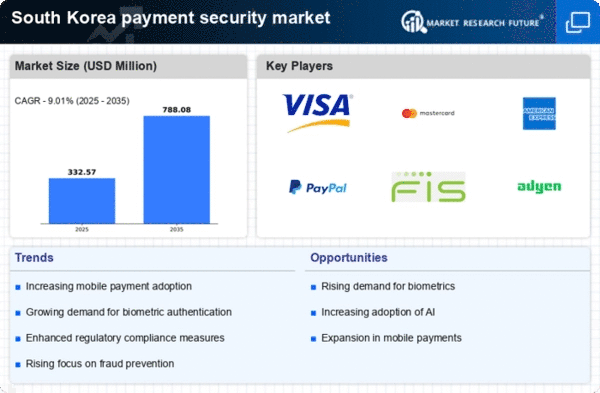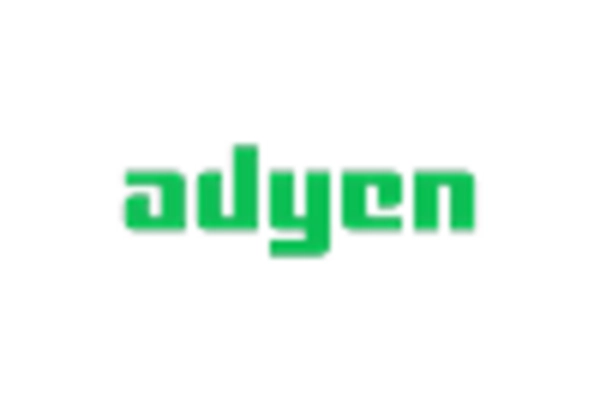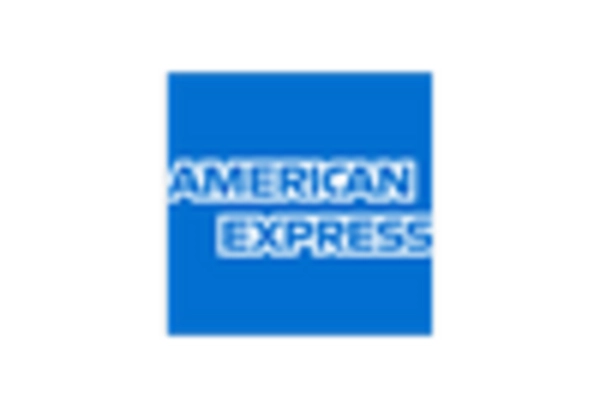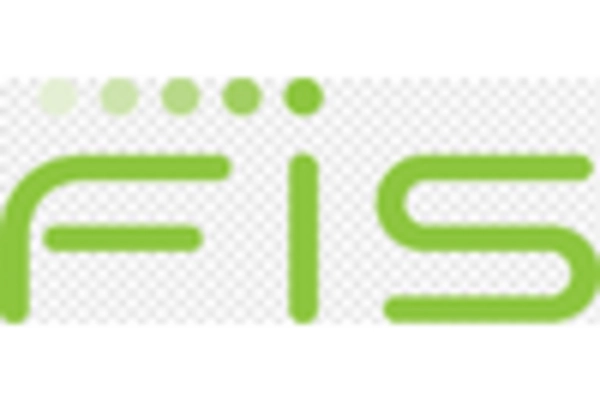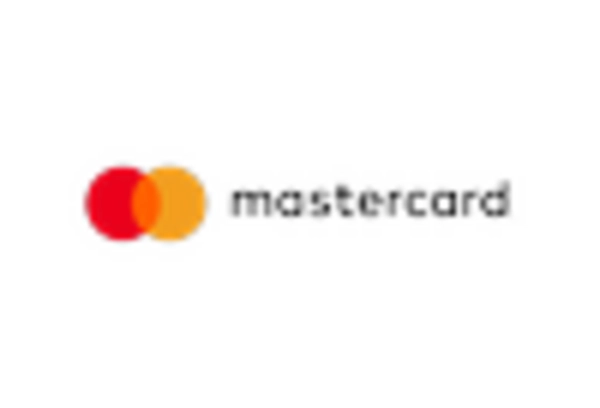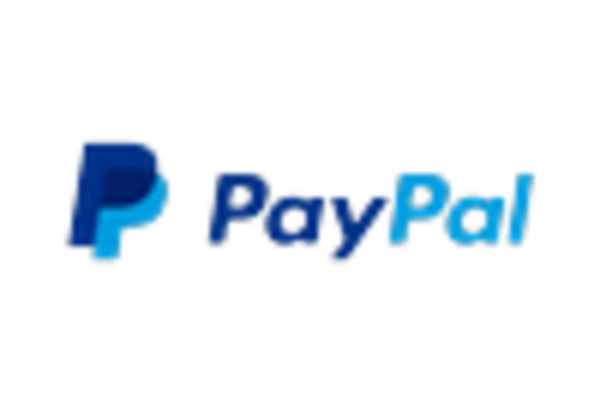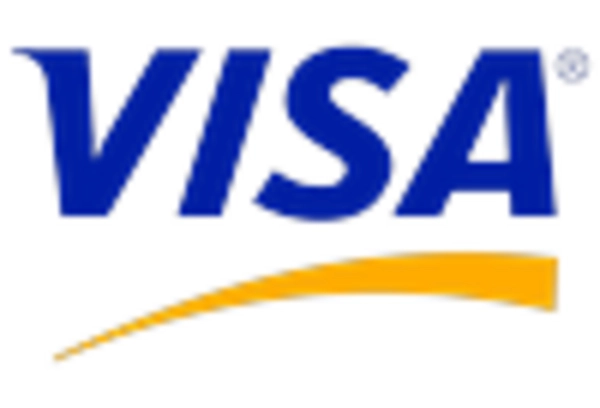Rising Cybersecurity Threats
The increasing frequency and sophistication of cyberattacks in South Korea has heightened the demand for robust solutions in the payment security market. With incidents of data breaches and financial fraud on the rise, businesses are compelled to invest in advanced security measures. According to recent data, the financial sector has reported a 30% increase in cyber threats over the past year. This alarming trend underscores the necessity for enhanced security protocols, as organizations strive to protect sensitive customer information and maintain trust. Consequently, the payment security market is experiencing significant growth, driven by the urgent need for effective cybersecurity solutions to combat these evolving threats.
Consumer Awareness and Demand for Security
As consumers become increasingly aware of the risks associated with online transactions, their demand for secure payment options is driving growth in the payment security market. Surveys indicate that approximately 70% of South Korean consumers prioritize security features when choosing payment methods. This shift in consumer behavior compels businesses to adopt more stringent security measures to meet customer expectations. The heightened focus on security not only enhances customer trust but also fosters loyalty, thereby creating a competitive advantage for companies that prioritize payment security. This trend is likely to continue, further propelling the payment security market as businesses adapt to consumer demands.
Growth of E-commerce and Digital Transactions
The surge in e-commerce and digital transactions in South Korea is a significant driver of the payment security market. With online shopping becoming increasingly popular, the volume of digital transactions has skyrocketed, leading to a corresponding rise in the need for secure payment solutions. Recent statistics reveal that e-commerce sales in South Korea have grown by over 25% in the past year alone. This growth presents both opportunities and challenges, as businesses must ensure that their payment systems are secure to protect against fraud and data breaches. Consequently, the payment security market is poised for substantial growth as companies seek to enhance their security measures in response to this expanding digital landscape.
Technological Advancements in Payment Systems
The rapid evolution of technology in payment systems is a key driver of the payment security market. Innovations such as contactless payments, mobile wallets, and blockchain technology are reshaping the landscape of financial transactions in South Korea. These advancements necessitate the implementation of sophisticated security measures to safeguard against potential vulnerabilities. For instance, the adoption of blockchain technology is projected to reduce fraud by up to 50% in the next few years. As businesses integrate these technologies, the demand for comprehensive security solutions will likely surge, thereby fueling growth in the payment security market.
Regulatory Landscape and Compliance Requirements
The regulatory environment in South Korea is becoming increasingly stringent, with authorities implementing new compliance requirements for financial institutions. These regulations aim to enhance consumer protection and ensure the integrity of payment systems. As a result, businesses are compelled to invest in payment security solutions to comply with these regulations. The payment security market is expected to expand as organizations seek to align their operations with legal standards, thereby mitigating risks associated with non-compliance. This trend indicates a growing recognition of the importance of regulatory adherence in fostering a secure payment ecosystem.


